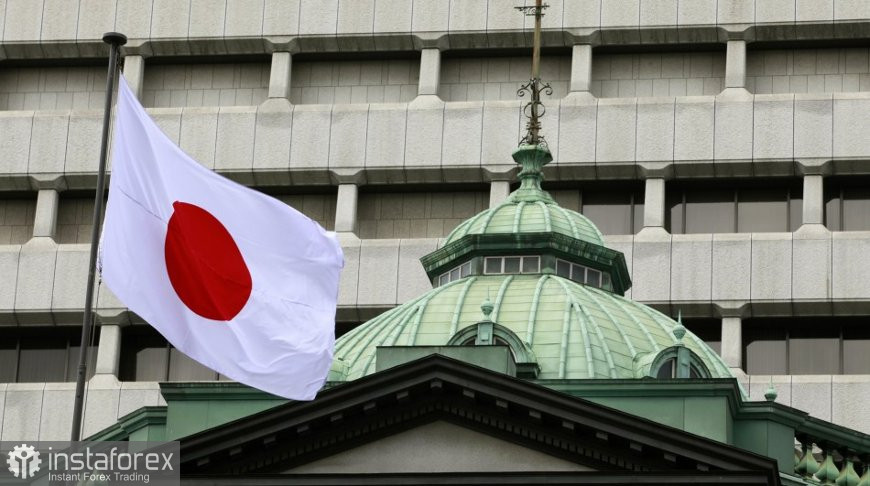The Japanese yen has halted its growth against the U.S. dollar. It is expected that the Bank of Japan will maintain its negative interest rate at its meeting on Tuesday. At the same time, investors will likely be looking for hints in the comments about when authorities plan to abandon this policy next year.
Most economists forecast that there will be no changes in interest rates or in the mechanism for controlling short-term rates and the yield curve during the political meeting ending on December 19. Surveyed observers of the Bank of Japan consider April of next year as the most likely month for policy tightening.

As two-thirds of economists predict the end of the negative rate program by April 2024, the main focus of economists tomorrow will be on whether the bank signals any progress towards achieving its inflation target. Following the unexpected dovish pivot of the Federal Reserve last week, traders fear another potential surprise from Bank of Japan Governor Kazuo Ueda.
Last week, representatives of the regulator stated that they do not see the need to rush with the abolition of the negative rate due to the lack of sufficient evidence of wage growth to support stable inflation. The yield curve control policy will also not be discussed and is not the main topic for discussion, as many consider it to be an insurance policy preventing a sudden spike in bond yields since Governor Ueda revised the flexibility of this mechanism.
During tomorrow's meeting, there will also be no publication of updated forecasts, so all attention will be on the policy statement and Ueda's press conference, which will take place immediately after the meeting.
Note that this month, rumors of an imminent rate hike circulated after Bank of Japan Deputy Governor Ryozo Himino optimistically discussed the consequences of a rate hike. Ueda further fueled speculation by stating that his job will become more challenging early next year.
Against this background, some investors perceived comments from Bank of Japan representatives regarding scenarios for winding down the easy policy as a signal of an inevitable departure from yield curve control. However, many economists consider this a mistake, although the quotes of the Japanese yen, which have risen significantly against the U.S. dollar recently, suggest the opposite.
It is expected that if Ueda does implement the first rate hike in the country since 2007, he will probably prefer to do so when the government is stable and able to coordinate actions.
As for tomorrow's meeting, it is forecasted that the Bank of Japan will lay the foundation for policy normalization in the coming months, but there are also those who believe that nothing of the sort will happen.
The BoJ has so far refrained from giving any clear hints about the timing of a potential interest rate hike, indicating that Japanese authorities are unlikely to resort to specific statements tomorrow, similar to those used by the Federal Reserve and some other central banks last week.
In October, Ueda, at a press conference after a meeting, suggested that the bank was slightly closer to reducing monetary stimulus, stating that confidence in achieving the inflation target had increased slightly. Obviously, the Bank of Japan currently does not need to provide additional indications of a rate hike, as market players already generally and rightfully expect it to happen in April, playing out this scenario.
 English
English 
 Русский
Русский Bahasa Indonesia
Bahasa Indonesia Bahasa Malay
Bahasa Malay ไทย
ไทย Español
Español Deutsch
Deutsch Български
Български Français
Français Tiếng Việt
Tiếng Việt 中文
中文 বাংলা
বাংলা हिन्दी
हिन्दी Čeština
Čeština Українська
Українська Română
Română

